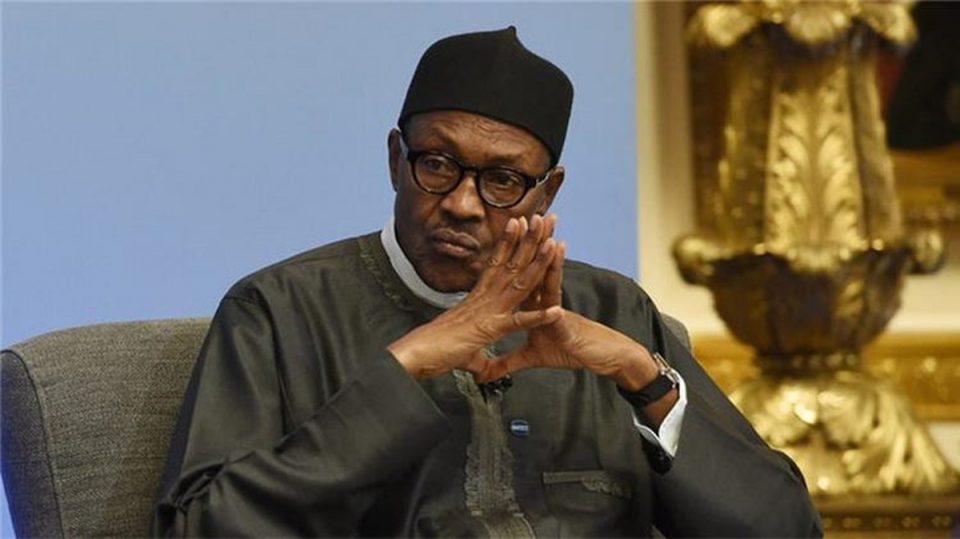The 22 year old report of the Human Rights Violations Investigation Commission may be dusted up for a review by President Muhammadu Buhari, The Nation learnt Saturday night.
The panel, which was headed by a former Justice of the Supreme Court, the late Justice Chukwudifu Oputa, was set up by the then President Olusegun Obasanjo to look into allegations of gross violations of human rights by the military, assassination, unlawful arrest, detention, physical and mental torture, disappearances and communal conflicts.
Most of its recommendations were not implemented by the Obasanjo, Umaru Yar’Adua and Goodluck Jonathan administrations.
But there is now hope that clemency and pardon may be on the way for some of those implicated in the 1995 and 1997 phantom coups to topple the military regime of the late Head of State, Gen. Sani Abacha.
Some victims of the annulled June 12, 1993 Presidential Election may also get justice based on the recommendations of the Oputa Panel.
Some of those who may benefit from the pardon are a former Minister of Communication, Maj-Gen. Tajudeen Olanrewaju, a former egghead in the Nigerian Army, the late. Col. Gabriel Ajayi, late Lt – Colonel Olu Akiyode, Colonel Edwin Jando, Col. Olusegun Oloruntoba and others.
Others include those either granted clemency and unimplemented pardon by the administrations of a former Head of State, Gen. Abdulsalami Abubakar, the late President Yar’Adua and ex-President Jonathan.
There are others whose clemency and pardon from conviction has been included in the Nigeria Official gazette
According to investigation, President Muhammadu Buhari has set up a process of implementing part of the Oputa Panel’s report following some petitions sent to the Attorney-General of the Federation, Mallam Abubakar Malami (SAN).
The petitioners had appealed to the President for justice “via the implementation of the Oputa Panel’s recommendation in favour of victims of June 12, 1993 Presidential Election annulment and subsequent phantom coups.”
Findings confirmed that the government has been looking at some of the petitions since August last.
The Nation also confirmed that Malami has made some recommendations to the Secretary to the Government of the Federation, Mr. Boss Mustapha to crosscheck some claims in the official records of the Federal Government.
It was learnt that after the input, President Buhari will get a proposal which he may table before the Council of State or implement based on the previous decisions of the council.
A top source, who spoke in confidence with our correspondent, said: “After receiving some petitions, the government decided to revisit some recommendations of the Oputa Panel, especially those that had been in the gazette before or those bordering on Presidential proclamations.
“There are some cases of ex-military officers whose ranks and full entitlements have been restored by the Oputa Panel but no action was taken. The affected officers were those alleged to have participated in 1995 and 1997 coups.
“We have had instances in the past where former Presidents Umaru Yar’Adua and Goodluck Jonathan pardoned some former military officers.
“The whole essence is to ensure justice for all, including some victims of the June 12, 1993 Presidential Election. President Buhari has declared June 12 as Democracy Day and even honoured the acclaimed winner of June 12 election, Chief M. K.O Abiola with a posthumous award of the Grand Commander of the Federal Republic (GCFR), his then running mate, Babagana Kingibe, got the Grand Commander of the Order of the Niger (GCON) and a late human rights activist and senior lawyer, Gani Fawehinmi, was awarded the GCON.
“I cannot tell you the exact number of those pushing for the implementation of Oputa Panel’s report but the ultimate goal of the government is justice and national cohesion.
“It is also not new that a former Minister of Works, Maj-Gen. Tajudeen Olanrewaju has been seeking redress for a pardon after he was granted clemency by ex-Head of State, Gen. Abubakar and Oputa Panel.
“Others demanding the implementation of Oputa Panel’s report are families and associates of a former egghead in the Nigerian Army, the late. Col. Gabriel Ajayi, late Lt – Colonel Olu Akiyode, Colonel Edwin Jando, Col. Olusegun Oloruntoba and others.”
In March 2013, ex-President Jonathan initially pardoned six military officers.
But when the gazette was released, the beneficiaries were only a former Chief of General Staff, Gen. Oladipo Diya, who was alleged to be the ‘phantom coup’ leader; a former Minister of Works and Housing, late Gen. Abdulkarim Adisa and Diya’s aide, Major. Bello Fadipe.
Those left out were Olanrewaju, late Lt – Colonel Olu Akiyode, and Colonel Edwin Jando.
It was gathered that Olanrewaju was dropped from the list by the Jonathan government having been branded as “not only a chieftain of Buhari’s Congress for Progressive Change (CPC) but actually the party’s main financier in Lagos State.”
But despite his pardon, Diya begged Jonathan to publish and implement the Oputa Panel report.
He said: “It is no gain saying that both officers and civilians sentenced on the incidence must benefit from this Federal Government benevolence, otherwise it will become a selective state pardon, which will put to question the fate of others not so pardoned
“This was a panel set up by the Federal Government of Nigeria with state funds and a report was submitted on it. A lot of findings and recommendations were made most specially on the phantom coups of 1995 and 1997.
“A similar panel called the Truth and Reconciliation Commission was set up in the Republic of South Africa. The implementation of that committee report in South Africa has contributed tremendously in stabilizing and putting that country through the path of growth.”
The Human Rights Violations Investigation Commission received about 10,000 petitions on gross violations of human rights by the military, assassination, unlawful arrest, detention, physical and mental torture, disappearances and communal conflicts.
It however ended up hearing 340 cases leading to a report of eight volumes of 15,000 pages in 2002.




